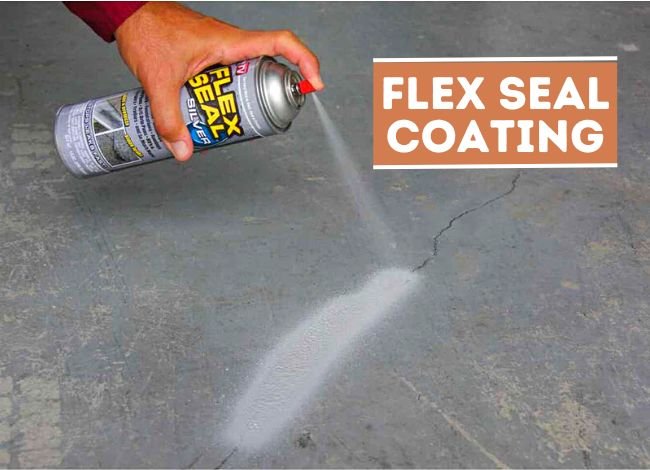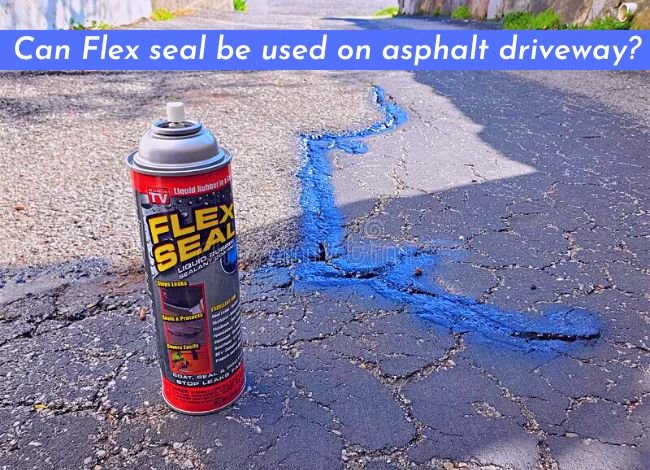Last Updated on April 10, 2025
Regular driveway maintenance includes sealing to protect against weather damage and cracks. While there are various popular sealers available, Flex Seal stands out for its unique versatility and application range. But can it really be used on an asphalt driveway? Let’s explore.
What Exactly Is a Flex Seal Coating?
Flex Seal is a liquid rubber coating known for its elastomeric properties, meaning it stretches and contracts easily with temperature changes. It can be applied on materials like metal, plastic, wood, ceramic, concrete, and more. Flex Seal typically lasts up to 10 years, making it a durable option.
Many users wonder: Can Flex Seal be used as an asphalt driveway sealer?
Yes—you can use Flex Seal to seal asphalt-to-concrete, asphalt-to-asphalt, and even concrete-to-concrete joints. It also works effectively for filling cracks in asphalt driveways.
How to Apply Flex Seal on Cracked Asphalt Driveways
Flex Seal is a great option for sealing minor cracks in your asphalt surface. Here’s a step-by-step guide:

i) Choose the Right Flex Seal
Flex Seal is available in various colors, but black and gray are the most suitable for driveways. Choose one that blends best with your asphalt surface.
ii) Clean the Cracked Area
Before applying, thoroughly clean the driveway. Use soap or detergent and water to remove dirt, sand, oil, and debris. A clean surface ensures better adhesion and longer-lasting results.
iii) Apply Flex Seal
Shake the spray can well, then evenly apply Flex Seal to the driveway cracks. For deeper or wider cracks, apply a thicker coat or repeat the process as needed.
iv) Let It Dry
In dry and sunny weather, Flex Seal cures faster. However, it can also be applied in wet or rainy conditions. If applied underwater or during rain, let the first coat dry and reapply to reinforce the seal.
Unique Benefit: Works Even in Rainy Conditions
Unlike traditional driveway sealers that fail to adhere in moisture, Flex Seal can be applied in rainy or snowy conditions, and even underwater. This makes it a perfect choice for people living in cold, wet, or unpredictable climates.
Are There Any Disadvantages?
While many users find Flex Seal reliable for small repairs and crack sealing, some manufacturers do not recommend using it as a full driveway sealing solution. It’s mainly due to potential wear and breakdown over time on high-traffic surfaces.
Still, based on user feedback, Flex Seal is effective for spot repairs and crack filling, especially when you’re in a pinch or need a quick-fix sealing solution during wet conditions.
❓ FAQs About Using Flex Seal on Driveways
1. What is the best use of Flex Seal?
Flex Seal is most effective for filling cracks in asphalt or concrete driveways. While it is not designed to replace full-scale driveway sealers, it offers a quick and reliable fix for small to medium cracks, preventing further water infiltration and surface deterioration.
2. How can I apply Flex Seal perfectly?
To apply Flex Seal properly:
- Shake the can or stir the product thoroughly.
- Clean and dry the cracked surface for best adhesion.
- Spray or spread the product evenly on the crack.
- Let it dry completely before reapplying or exposing it to traffic.
Always follow the instructions provided in the user manual for optimal results.
3. Can I use Flex Seal on a concrete driveway?
Yes, Flex Seal adheres well to concrete surfaces. It can be used to fill cracks or gaps in concrete driveways, walkways, and patios. It also works on surfaces like metal, wood, plastic, fabric, and more.
4. How long does Flex Seal last on an asphalt driveway?
Flex Seal can last up to 10 years depending on weather conditions, surface preparation, and traffic levels. For driveways with frequent use, periodic touch-ups may be necessary.
5. Can I apply Flex Seal during rainy or cold weather?
Yes! One of Flex Seal’s key advantages is its ability to be applied in wet or rainy conditions, and even underwater. However, for the best adhesion and durability, dry conditions are recommended whenever possible.
6. Is Flex Seal a replacement for a traditional asphalt driveway sealer?
No. While Flex Seal is great for spot repairs and crack filling, it is not a full replacement for traditional driveway sealers. It’s best used for quick fixes or in areas where sealing under moist conditions is required.
7. Can I drive on a Flex Sealed surface?
Yes, but allow at least 24 to 48 hours of drying time before exposing the surface to vehicle traffic. For heavy traffic areas or deeper cracks, additional coats and longer curing times may be necessary.
Final Thoughts
So, can Flex Seal be used on asphalt driveways? Absolutely—for small cracks and quick repairs, especially during rainy seasons. It’s not a substitute for a full-scale asphalt sealer, but it’s an excellent tool to have on hand when you need reliable and flexible sealing in challenging weather.

